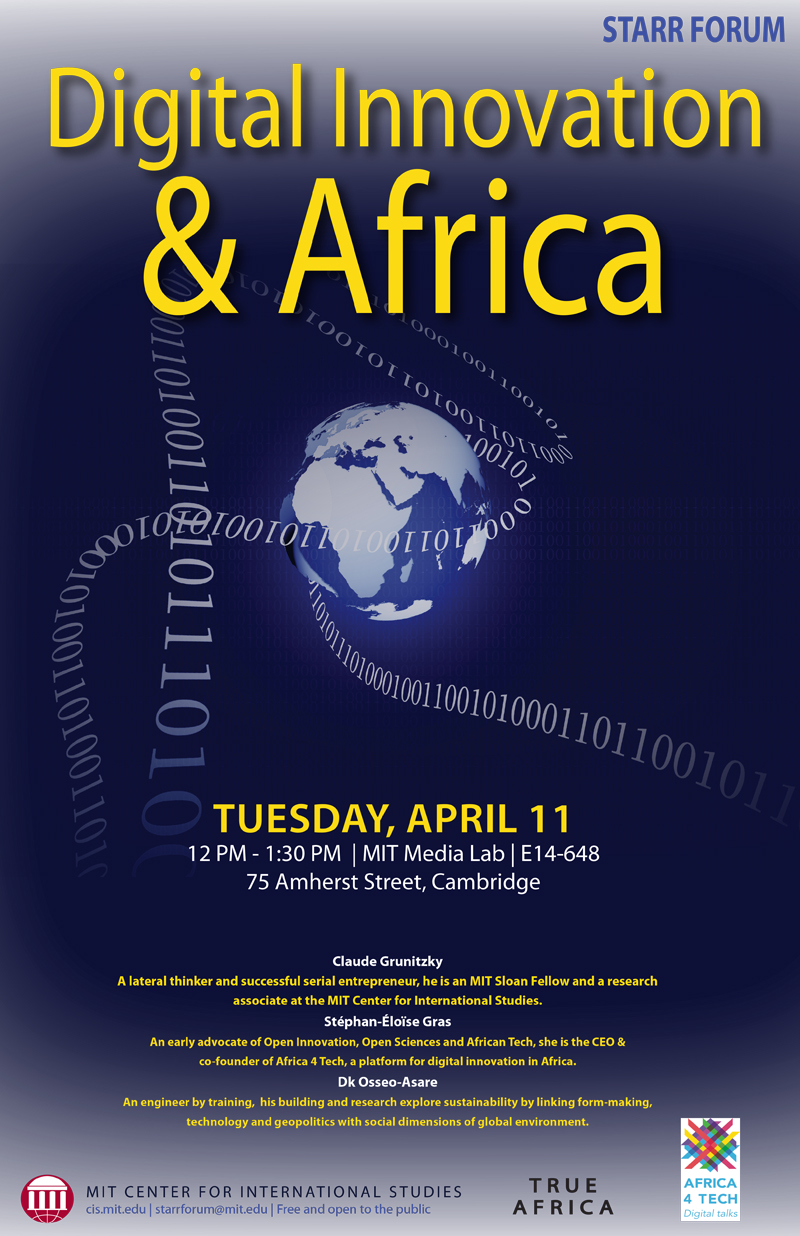
Download PDF:
Is it helping solve development challenges?
A new kind of African citizenry is consolidating itself right now, and it has a lot to do with the Internet. With each new mobile phone, with each new wireless connection, with each new social media interaction, the continent continues to embrace the most disruptive digital technologies. The growing accessibility of digital solutions, many of them homegrown, provides new models and opportunities for self-organized communities, political activism, and economic growth. It also raises new questions: who is providing the access: governments, local telcos, or American conglomerates?
As mobile money innovator M-Pesa turns ten this year, hot on its heels are an impressive number of “Made in Africa” solutions that claim to revolutionize the education, agriculture, health or energy industries. Digital technologies in Africa are all about being frugal, agile, and collaborative. It’s about starting from scratch, doing more with less, and growing faster. But are they really helping to solve Africa’s global challenges and, in return, do they provide a new model for development?
In 2011, MIT Sloan Associate Professor Tavneet Suri wrote that “technological progress or productivity improvements are the only way to have long-run sustained increases in income.” Still, many observers are disappointed in the pace of change, as many underserved African populations fail to see the new jobs and tangible results that are coming out of this new wave of tech.
This roundtable at MIT will explore and interrogate the socio-economic, cultural and geopolitical consequences of Africa’s leapfrog into new technologies.
SPEAKERS
Claude Grunitzky
A lateral thinker and successful serial entrepreneur, Claude is the founder of TRACE. He is also the founder of TRUE Africa, a media tech platform championing your African voices all over the world. In February 2003, Grunitzky and two business partners completed a multimillion-dollar financing deal led by Goldman Sachs Group. TRACE, which now reaches more than 80 million people across 160 countries, was successfully sold to a French investor group in July 2010. Raised in Lomé, Togo, Washington, DC, Paris and London, Claude speaks six languages and carries three passports. His exposure to so many cultures has shaped his transcultural philosophy and informed the creative energy of his entrepreneurial ventures. Claude is the author of “Transculturalism: How the world is coming together.” Claude is an MIT Sloan Fellow and a research associate at the MIT Center for International Studies.
Stéphan-Éloïse Gras
An early advocate of Open Innovation, Open Sciences and African Tech, Stéphan-Eloïse Gras is the CEO & co-founder of Africa 4 Tech, a platform for digital innovation in Africa. She holds a PhD in Communication Sciences and in Philosophy and is a researcher at the Digital Humanism Chair (Humanum) of Sorbonne University in Paris. Her research focuses on digital cultures, literacies and their globalization. Her PhD dissertation "Taste-Maker Machines and Online Listening" about music API & deep learning algorithms is published by Hermann and La Philharmonie (Paris, 2016). From 2006 to 2015, she worked for the French Foreign Affairs Ministry, at the Regional Cooperation between France and South America in Buenos Aires (2006 -2009) and as the responsible for digital cooperation and prospective at the Institut français where she initiated Digital Africa, a conference cycle for emerging digital industries in Africa (2011- 2015).
Dk Osseo-Asare (Ghana) - Edtech Digital Champion
DK received an A.B. in Engineering Design from Harvard University. His building and research explore sustainability by linking form-making, technology and geopolitics with social dimensions of global environment. TEDGlobal Fellow, Fulbright Scholar and co-founder of design think tank DSGN AGNC, he has presented his work at the Royal Institute of British Architects, Harvard Graduate School of Design, PennDesign, Cornell, KNUST, University of Ghana-Legon, Smart Cities Expo and on the BBC. He blogs about African architecture and making at Afrch. Most recently, he designed a new town in Eastern Nigeria. DK Osseo-Asare is co-founding principal of Low Design Office (LOWDO), an architecture studio based in Texas and Ghana. He is also the initiator of Agbogbloshie Makerspace Platform (AMP), a transnational youth-driven project to promote maker ecosystems in Africa.
Co-sponsored by the MIT Center for International Studies, True Africa, and Africa 4 Tech
Free & open to the public | Refreshments served
Can't attend in person? Watch it on Facebook live or on-demand on YouTube.
For more information or accessibility accommodations please contact starrforum@mit.edu.



